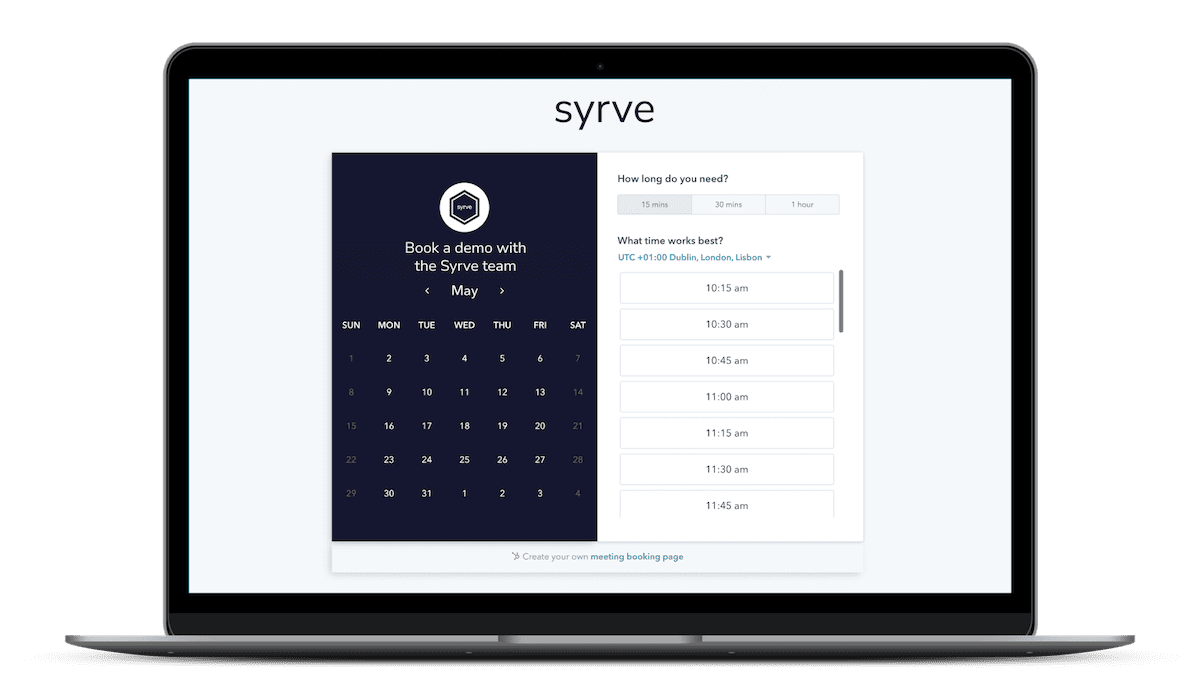The drive for greener more sustainable ways of doing business is having an impact across all industries. And the food and beverage sector is certainly no exception. Unfortunately, too many restaurant owners believe that ‘sustainability’ is an ideal that’s just not realistically attainable. The perceived costs and operational complexities involved can also prove extremely off-putting, especially at a time when mere survival can be a challenge in itself.
But a growing awareness of environmental issues and a demand for eco-friendly practices among customers is compelling operators to change their approach. And in fact, implementing a sustainable strategy is entirely possible, particularly since the introduction of cloud-based technologies across the food and beverage sector.
Cloud-Based Restaurant Management Technology
In simple terms, cloud computing describes the provision of services over the internet that can be accessed remotely. Scalable, reliable and cost-effective, the technology has effectively gone viral since its introduction back in 2006.
In the F&B industry, cloud computing is used for countless POS and management systems. Essentially, this means that a restaurant’s transactional, inventory and customer data is stored on remote servers which can be accessed from anywhere with an internet or cellular connection. In terms of operational value, cloud-based systems offer countless benefits, especially in the challenging domain of sustainability. Here are three prime examples.
(1).jpg?width=636&height=424&name=Incontent8%20(1)(1).jpg)
1. Energy Efficiency
When it comes to POS systems, energy efficiency can be a major headache for restaurants. A lot of operators still rely on legacy platforms that were built during an era when sustainability wasn’t exactly de rigueur. As a result, the hardware was developed primarily to maximise performance instead of minimising energy use.
The seemingly obvious solution for a restaurant owner then, would be to install an energy-efficient system that prioritises energy consumption over speed and performance. Yet in an industry that demands fast and reliable POS systems, this constitutes a negative trade-off.
To make matters worse, legacy systems require restaurants to host the hardware infrastructure locally. This means energy-hungry servers and high-powered cooling systems. Even today, the hardware is often designed to run continuously and can’t be put into low-power states. Such a constant power draw results in much higher energy bills and a deeper carbon footprint.
How Cloud Systems Help with Energy Efficiency
For the most part, cloud-based restaurant management systems are operated off site, thus eliminating a reliance on locally installed servers and cooling equipment. Additionally, the more advanced cloud servers tend to include features such as dynamic load balancing so that they only run at full capacity as and when needed. And by centralising services in fewer locations, cloud platforms minimise energy consumption. For restaurant chains comprising multiple venues, the impact on energy efficiency can be significant.
Improving Energy Efficiency with Cloud-Based Systems - Summary
- Remote Servers Eliminate Need for Local Power-Hungry Local Hardware
- Cloud Servers Only Run at Full Capacity Only When Required
- Shared Centralised Cloud Infrastructure Minimises Energy Consumption
(1).jpg?width=636&height=424&name=Incontent3%20(1)(1).jpg)
2. Food Waste
Roughly 12% of all food thrown away in the UK each year is generated by restaurants. That’s about a million tonnes of waste. Apart from the financial cost (more than £3 billion annually), the ethical implications are significant.
The root causes of restaurant food waste are too numerous to mention here. Yet some of the key problems can be traced back to poor inventory management practices, among them a lack of monitoring and inaccurate stock checks. Inefficient preparation plans and hopelessly inadequate sale forecasts can also conspire to generate excess waste and spoilage.
Thankfully, restaurant owners now have at their disposal, if you’ll pardon the pun, a raft of sophisticated tech solutions that help to reduce restaurant waste. The latest management systems automate and streamline the inventory management process, enabling owners to set up automatic purchasing to avoid wasteful overstocking. Some also feature shelf management modules that send alerts when items are reaching their expiry so that they can be used before spoiling.
In addition, the advanced analysis of historical data makes for extremely accurate sales forecasts which enables managers to make data-driven decisions that closely align with demand fluctuations. From these forecasts, prep plans are generated that comprise only the precise quantities of ingredients for any given period, thereby ensuring that nothing goes to waste.
How Cloud Systems Help to Reduce Food Waste
It should be pointed out that most of the preventative methods mentioned above can be achieved with the latest in-house and hybrid management systems. The only downside to these technologies is that it’s not possible to stay in the loop regarding inventory levels, or indeed any other managed processes, when off site.
But with a cloud-based platform, you can connect with the system from almost any location via mobile and receive alerts when stock levels reach certain levels, when ingredients are close to expiry or when it’s time to place an order with a supplier.
Preventing Food Waste with Cloud-Based Systems - Summary
- Automated Purchasing Avoids Overordering
- Shelf Life Modules Provide Alerts When Ingredients Approach Expiry
- Accurate Sales Forecasts Align Inventory Levels with Customer Demand
- Automatically Generated and Precise Prep Plans
- Mobile Stock Checks Improve Accuracy
.jpg?width=636&height=424&name=Incontent11(2).jpg)
3. Carbon Emissions From Transportation
Ensuring low emissions is utterly central to the goal of sustainability. And in the context of F&B operations, it’s a big subject, covering energy efficiency, food waste and the use of sustainable ingredients. But what about emissions generated by transportation?
According to the Greenhouse Gas Protocol, these are designated as Scope 3 emissions which, in the restaurant industry, account for 70% of all carbon emitted into the atmosphere. Customer travel, commuting, order delivery and logistical transit are among the main sources.
As far as customer travel goes, there’s not a great deal a typical restaurant manager can do, short of compelling patrons to walk or ride a bicycle to their establishment. Clearly, this isn’t an option. With that said, commuting, delivery and logistical emissions can be reduced with the use of advanced cloud-based technology.
How Cloud Systems Help to Reduce Transportation Emissions
Reducing emissions arising from commuting is achievable to a certain extent. While the implementation of cloud-based management systems isn’t going to make much of a difference with regards operational staff, for executive employees or those responsible for managing operations, they can have a major impact.
This is simply because it’s possible to connect to these system off site to monitor operations and receive alerts. This kind of remote connectivity eliminates the need to travel in constantly. Delivery routes can also be optimised with more advanced cloud systems, reducing the distances required to deliver items.
In terms of reducing logistical carbon emissions, the use of automated procurement ensures that your stock levels are kept at optimum levels which puts an end to emergency deliveries. In many cases, it’s also possible to prioritise specific suppliers, not only with regards to performance but in relation to their geographical location. By sourcing ingredients from local companies, the distance that the actual goods need to travel is reduced.
Reducing Transportation Emissions with Cloud-Based Systems - Summary
- Remote System Access Cuts Down on Commuting
- Delivery Route Optimisation Reduces Distances
- Automated Procurement Eliminates Emergency Deliveries
- Prioritising Local Suppliers Reduces Deliver Distance
.jpg?width=636&height=424&name=Incontent12(1).jpg)
Final Thoughts
So putting it all together, it’s clear that the task of pursuing a sustainable strategy for your restaurant has become a whole lot easier since the proliferation of advanced cloud-based management systems. By automating and streamlining key processes, these sophisticated technologies provide you, the restaurant owner, with an opportunity to balance your financial objectives with environmental and social responsibility.



